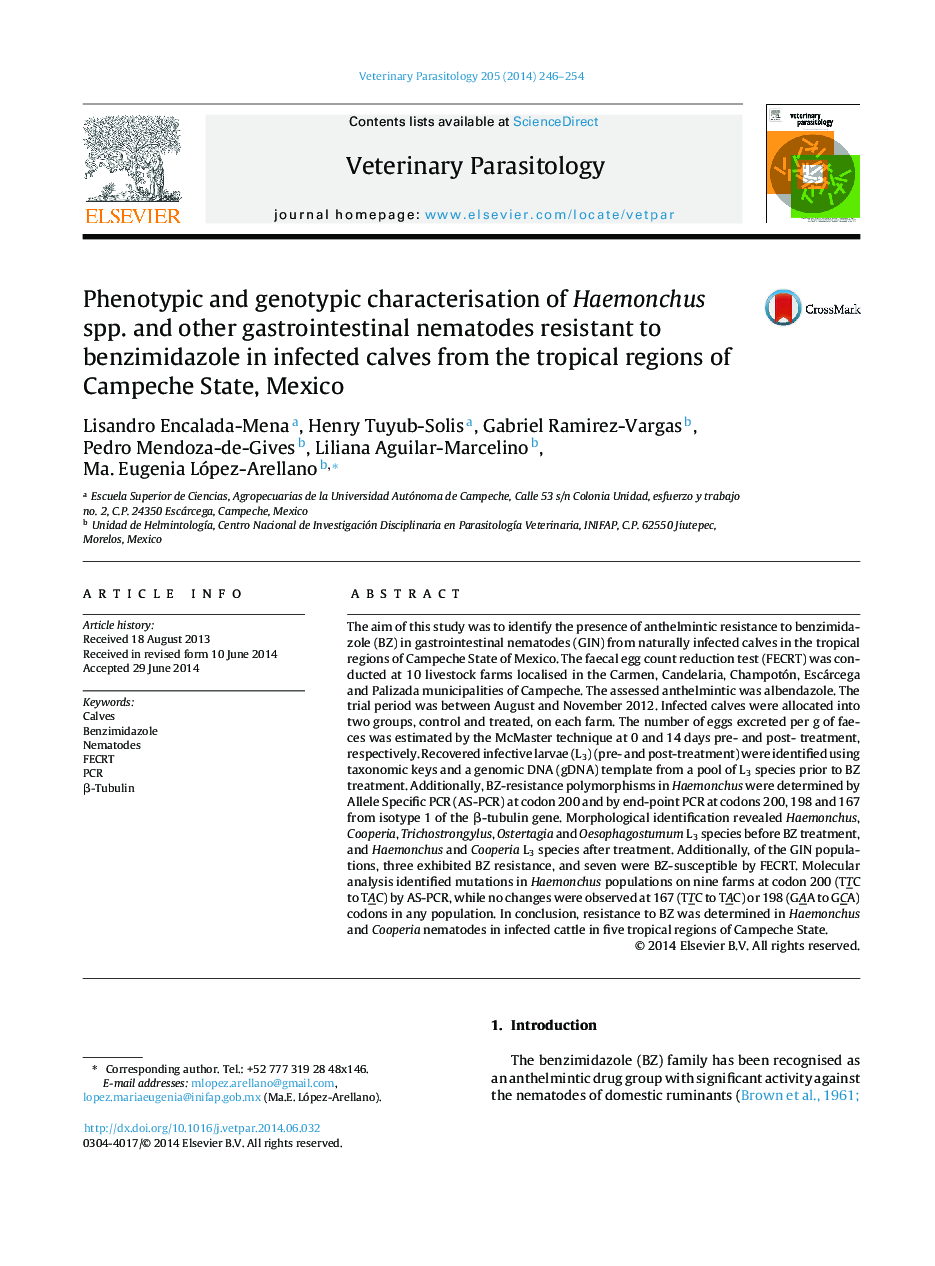| Article ID | Journal | Published Year | Pages | File Type |
|---|---|---|---|---|
| 5803221 | Veterinary Parasitology | 2014 | 9 Pages |
The aim of this study was to identify the presence of anthelmintic resistance to benzimidazole (BZ) in gastrointestinal nematodes (GIN) from naturally infected calves in the tropical regions of Campeche State of Mexico. The faecal egg count reduction test (FECRT) was conducted at 10 livestock farms localised in the Carmen, Candelaria, Champotón, Escárcega and Palizada municipalities of Campeche. The assessed anthelmintic was albendazole. The trial period was between August and November 2012. Infected calves were allocated into two groups, control and treated, on each farm. The number of eggs excreted per g of faeces was estimated by the McMaster technique at 0 and 14 days pre- and post- treatment, respectively. Recovered infective larvae (L3) (pre- and post-treatment) were identified using taxonomic keys and a genomic DNA (gDNA) template from a pool of L3 species prior to BZ treatment. Additionally, BZ-resistance polymorphisms in Haemonchus were determined by Allele Specific PCR (AS-PCR) at codon 200 and by end-point PCR at codons 200, 198 and 167 from isotype 1 of the β-tubulin gene. Morphological identification revealed Haemonchus, Cooperia, Trichostrongylus, Ostertagia and Oesophagostumum L3 species before BZ treatment, and Haemonchus and Cooperia L3 species after treatment. Additionally, of the GIN populations, three exhibited BZ resistance, and seven were BZ-susceptible by FECRT. Molecular analysis identified mutations in Haemonchus populations on nine farms at codon 200 (TTC to TAC) by AS-PCR, while no changes were observed at 167 (TTC to TAC) or 198 (GAA to GCA) codons in any population. In conclusion, resistance to BZ was determined in Haemonchus and Cooperia nematodes in infected cattle in five tropical regions of Campeche State.
